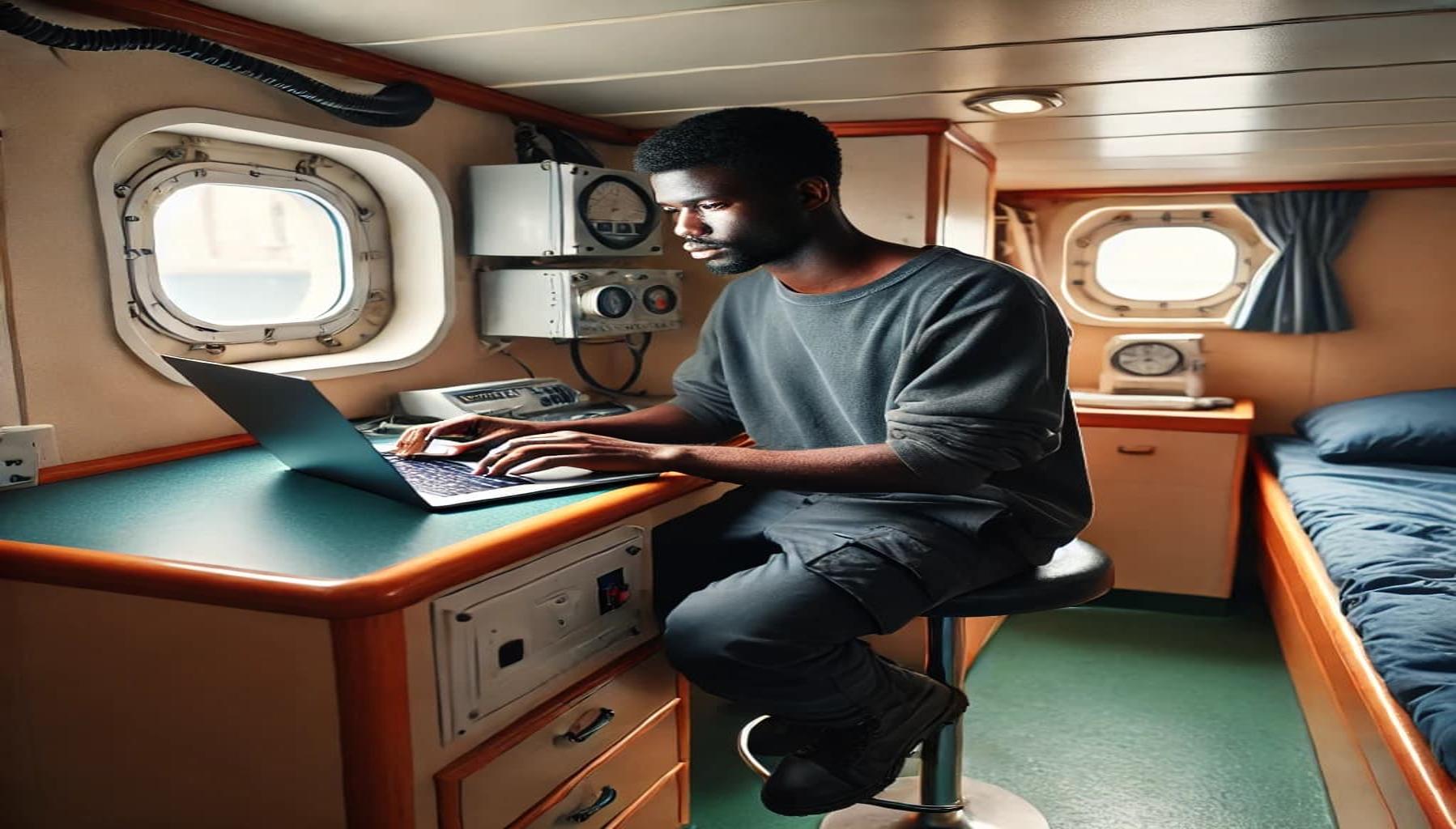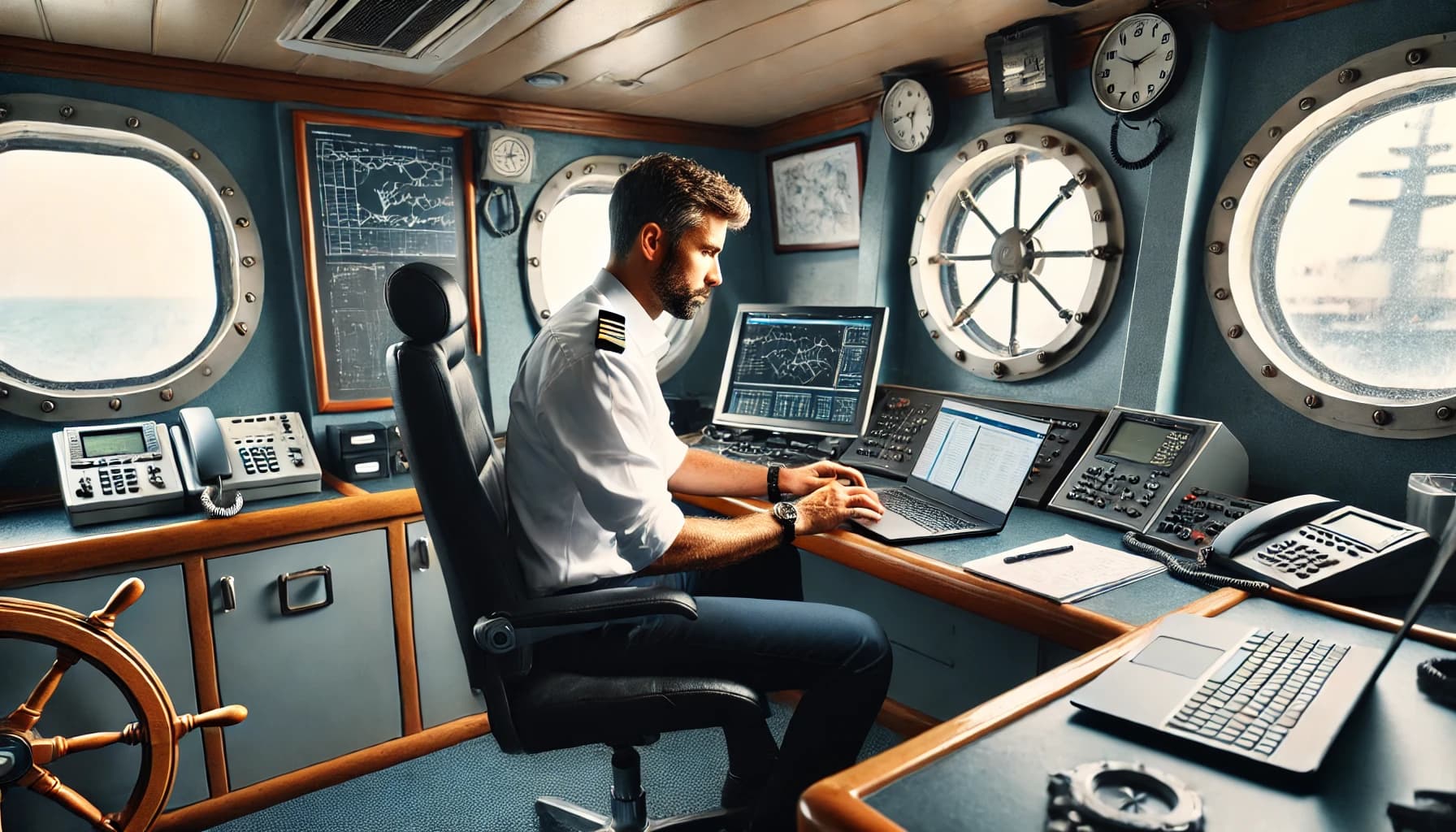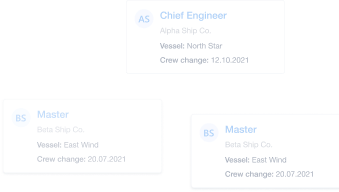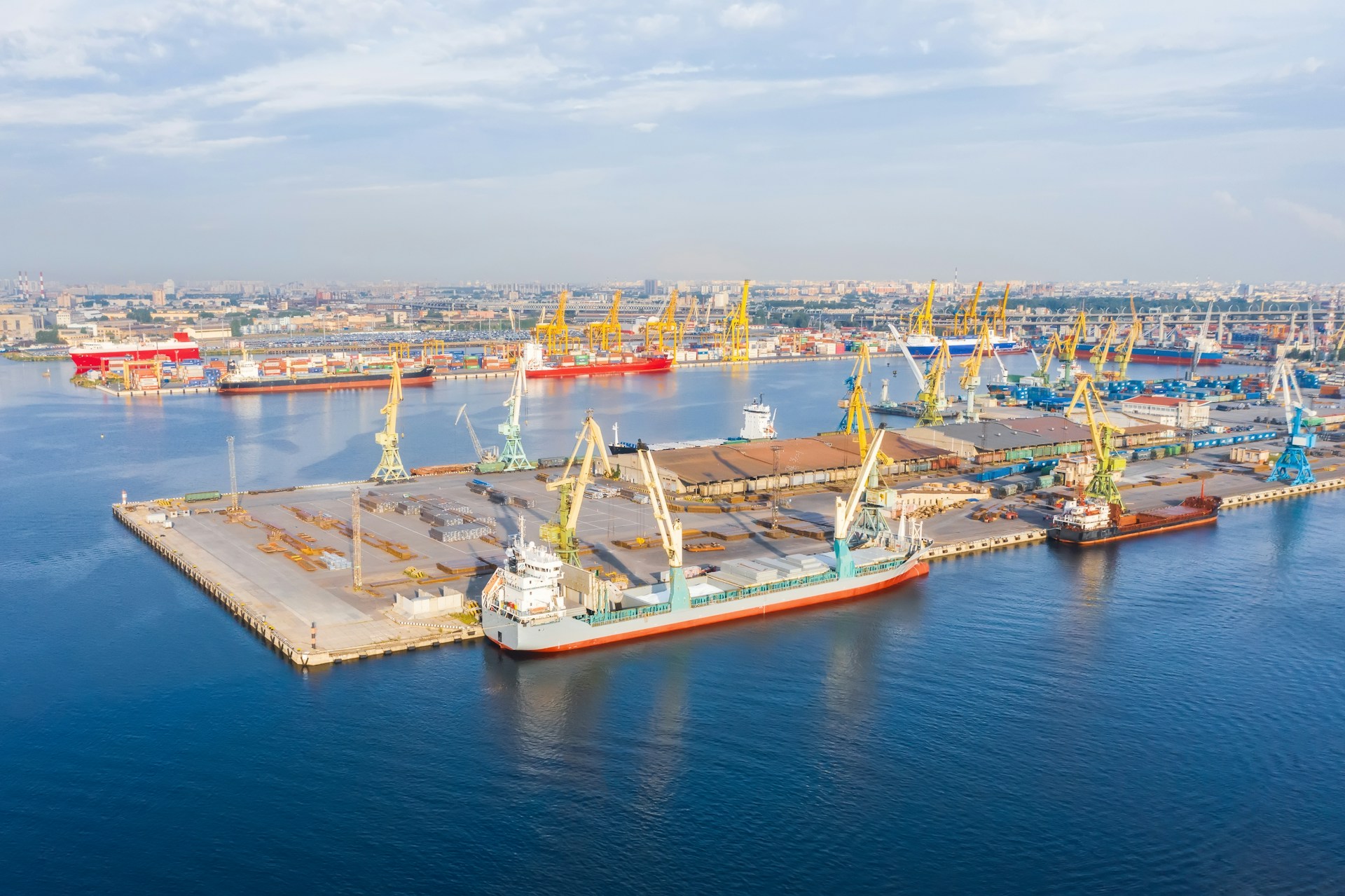Working in a job at sea isn’t for everyone, but for those who are seeking something different than the traditional 9 to 5, a maritime career can offer a lifetime of opportunities. Many people who already work in a seafarer’s job will probably tell you that they thought long and hard about a life at sea - while for others it may have already been a given that they’d work on a container ship.
But if you’re wondering whether a career at sea is for you, it might help to know some of the pluses and minuses before you start seriously thinking about your next steps.
With that in mind, we thought we’d take a look at some of the pros and cons of working away at sea.
A balanced look at the good and not-so-good things about seafarer jobs
Let’s start with the pros, the pluses and the thumbs up aspects of working in a container ship job.
The pros of working on a cargo ship
(And when we say cargo ship, we could just as well be referring to an oil tanker, cruise liner or offshore vessel!)
The opportunity to travel the world
Let’s start with the most obvious one - seeing the world. This is an undeniable perk of working in a seafarer job. You’ll go to places that some of your friends and family back home can only dream of seeing.

However - and there is a big however - in most cases, gone are the days of extended shore leave. If you think you’ll be stopping at every port to drink and be merry, think again.
Read more: 7 Common Misconceptions About Seafarer Jobs
While it’s true, you may get some time to explore your latest port of call, often you’ll either be on such a quick turnaround that you’ll either stay onboard your vessel, or just hop off for a quick chat with some friendly faces, such as those of the Mission to Seafarers who are based in ports worldwide and offer support and welfare to those working at sea.
An unbeatable sense of camaraderie
Cargo and container ship crews are typically very close, and there is a strong sense of camaraderie among the departments. It’s normal to develop a bond with the people you work with - after all, many of us spend more time with our co-workers than we do with our own family!
But take that bond, lift it up and drop it thousands of miles offshore and you’ll see just how these strong ties can develop. After all, you’ll be part of a unique team - and only you and your fellow crew mates can really understand what it’s like to work away from home for months on end in, sometimes, challenging conditions.
Working on a cargo ship also gives you the chance to work with people from all over the world. A crew is often made up of seafarers of different nationalities, giving you an excellent opportunity to learn about different cultures and make new friends.
The ability to save money
In other words - free room and board. Quite literally! When you’re working on a ship you will be provided with a bunk to sleep in as well as your meals and refreshments, saving you a good deal of money on living expenses.

You might want to make the odd purchase here and there from the ship’s slop chest - anything from instant noodles to shampoo and from chocolate and candy to alcohol. (If your vessel has a policy which allows the odd beer or two when you’re not on the clock.)
But generally speaking, many seafarers work at sea precisely because a maritime career allows them to save money and send it home to support their families and buy homes, cars and other things that they may not be able to afford if they worked ashore.
Relatively steady employment
With 90% of the globe’s trade being transported by sea, ships and seafarer jobs are very much in demand. Even the rise of autonomous and self-driving ships won’t have too much impact on seafarer jobs - especially not in the near future.
Crews these days on container and cargo ships may be smaller than they once were, but seafarers are still very much in demand by shipping companies and ship managers. For the foreseeable future, a seafarer job is still very much a stable job.
Just keep in mind that maritime academies turn out many young cadets each year, so staying one step ahead of the pack and making sure you’re constantly improving your skills and looking for jobs at sea in the right places is a must.
ARE YOU LOOKING FOR YOUR NEXT JOB ON A CONTAINER SHIP? TAKE A LOOK AT MARTIDE’S SEAFARER JOBS NOW!
Opportunities for advancement
Climbing the maritime career ladder is often of great importance to those working on tankers and container ships. And the good news is, that because there is a strict hierarchy of ranks onboard vessels, you will start in an entry level seafarer job and from there - the only way is up!
With hard work, dedication and the right training and qualifications you will be able to move up the ranks and may eventually become a Bosun (head of the Deck Department), Chief Engineer (head of the, you guessed it, Engineering Department) Chief or other senior officer - or even the Master (captain) of a ship one day.

And of course there are plenty of other interesting jobs at sea in between. Interest in electronics? Take a look at Electro-Technical Officer (ETO) jobs. Love cooking? Maybe the ship’s Cook is the ideal goal to aim for.
A unique, yet challenging job
Working on a cargo ship is unlike anything you’ll experience working in a job on land. You will start at the bottom and work your way up the seafarer ranks, learning a variety of skills that could range from navigation, engine maintenance, cargo handling and even firefighting as you go.
It all depends on your rank and the department you work in on a ship, of course. But there will be other skills and attributes that all seafarers will learn including safety and first aid and how to react in an emergency.
And should you decide to at some point hang up your overalls or epaulets and transition to a maritime job on land, your ability to think quickly and calmly and deal with tricky situations will stand you in good stead.
The cons of working in seafarer jobs
Of course, like any job, there are also some downsides to working on a cargo ship or a chemical tanker or even a tugboat. Although (spoiler) we think the pros far outweigh them!
But in the interests of being fair, here are a couple of things you need to consider if you’re interested in pursuing a career at sea.
A physically demanding work environment
We won’t sugarcoat it; working in a job at sea can be physically demanding and the hours can be long. Depending on your actual job and your seafarer rank, there may be lots of physical, hard work involved.

Particularly in entry level cargo ships jobs, and especially those on deck, you will be spending a lot of time cleaning and maintaining the ship’s equipment, tools and even the deck itself. You may also need to work in cramped spaces, lift heavy objects and work in extreme weather.
The answer? Staying physically and mentally fit while onboard
Long hours and irregular shifts
Cargo ship workers often work long hours, including nights and weekends. It goes without saying that this isn’t a 9 to 5 job! Your shifts or watches may be irregular and you may even need to be on call.
Getting used to waking up in the middle of the night and going down to rest mid-afternoon, depending on your watch can be tough to adjust to at first and can take its toll on your body clock.
The answer? Knowing how to stay well when you work a watch or shift.
Spending time away from home
Working on a cargo ship very likely means that you will spend weeks, or even months, at sea. For some in seafarer jobs, this isn’t too much of an issue. Others may feel homesick for the beginning of the voyage, while for others it can be the worst part of the job.
Figuring out how to cope when you’re working away from friends and family can be a steep learning curve for some seafarers, especially over holidays or if they have young children or elderly parents.
The answer? Beating homesickness with some coping mechanisms.
Difficulties communicating with loved ones
When you work at sea, it can sometimes be difficult, and not to mention expensive, to communicate with your friends and family back home on land. Not all vessels offer wifi - although this is improving - and you may need to wait until you reach port to get in touch.

This makes maintaining healthy relationships, especially with a partner, more complex as you will both need to be on the same page when it comes to dealing with personal matters between the two of you, as well as with family issues if they should arise.
The answer? Nurture your relationship, both in a personal and practical way.
The pros and cons of seafarer jobs: conclusion
Yes, you may be away from your family and friends for extended periods of time and yes, the work can be tough. However, for many seamen and women, the benefits of working on a cargo ship far outweigh the drawbacks.
Wondering if a life working at sea is a life for you? Ask yourself these questions to give yourself a head start.
Meanwhile, if you’re already working at sea and you’re looking for your next job on a ship, take a look at Martide’s current seafarer job vacancies and see if there’s anything that suits you.
SEE ALL OF MARTIDE’S SEAFARER JOBS HERE!
And don’t forget to download our seafarer job app for iOS or Android from the Apple App Store or from Google Play either!

Eve Church
Eve is Martide's content writer, publishing regular posts on everything from our maritime recruitment and crew planning software to life at sea. Eve has been writing professionally for more than two decades, crafting everything from SEO-focused blog posts and website landing pages to magazine articles and corporate whitepapers.
UK




